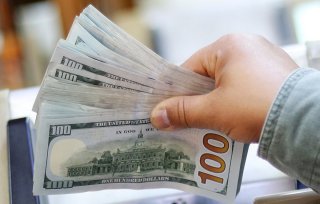$1,400 Richer? How to Know If Your Stimulus Debit Card or Check Is Legit
Among the nearly one hundred thirty million $1,400 coronavirus relief checks sent out to financially struggling Americans, more recently, the payments are coming in the form of paper checks and prepaid debit cards.
Among the nearly one hundred thirty million $1,400 coronavirus relief checks sent out to financially struggling Americans, more recently, the payments are coming in the form of paper checks and prepaid debit cards.
“The IRS continues to send the third round of stimulus payments in record time,” IRS Commissioner Chuck Rettig said in a statement. “Since this new set of payments will include more mailed payments, we urge people to carefully watch their mail for a check or debit card in the coming weeks.”
The agency also noted that it will potentially take weeks for nearly fifteen million paper checks totaling $34 billion and five million EIP cards, a prepaid debit card that one must activate online before using, totaling $11 billion to reach Americans’ mailboxes via traditional mail.
But when they do arrive, make sure to take the necessary steps to confirm that they are legit and not potential scams. Be aware that for the first two stimulus checks, there were reports of some people who mistook their mailed payments for junk mail and threw them out with the trash.
And to help prepare Americans waiting for that physical check, the IRS has released new images of what they should be on the lookout for in the mail this time—and it will prominently show the seal of the U.S. Treasury on the white envelope. Moreover, the paper checks will not bear President Joe Biden’s signature, though previous payments had former President Donald Trump’s name on it.
The same holds true for the prepaid debit card, which will also show the seal of the U.S. Treasury and the phrase “important information about your Economic Impact Payment” on the white envelope. Keep in mind that debit cards that were used for previous payments will not be automatically reloaded, so if you’re eligible, a new one will be issued. The debit cards will have the Visa name on the front and MetaBank N.A., which issues the cards, on the back.
According to the IRS, these EIP cards can be used online or at physical stores. They can also be deposited from at an ATM or transferred to another bank account and be used for cash-back from participating merchants.
If your debit card, however, ever gets lost or damaged, one can call customer service at 800-240-8100. A representative will deactivate the card “to prevent anyone from using it” and a replacement debit card will be sent “at no cost.”
According to the EIP card website, it is stated that the financial agent will “under no circumstances” sell cardholder information to third parties and that the Treasury Department will not be able to track where one spends the stimulus payments.
“Under Federal law (the Right to Financial Privacy Act), the federal government is not allowed to ask the card issuer about your Card account and the card issuer is not allowed to give the government information about your Card account without your written permission, except under very limited circumstances,” it states.
Furthermore, the government won’t be able to withdraw money from your EIP card.
“The funds loaded onto the EIP Card belong to you,” it states. “And you are the only one who can access or use the money.”
Ethen Kim Lieser is a Minneapolis-based Science and Tech Editor who has held posts at Google, The Korea Herald, Lincoln Journal Star, AsianWeek, and Arirang TV. Follow or contact him on LinkedIn.

